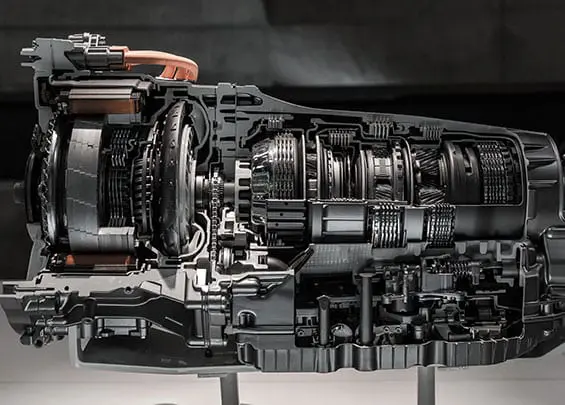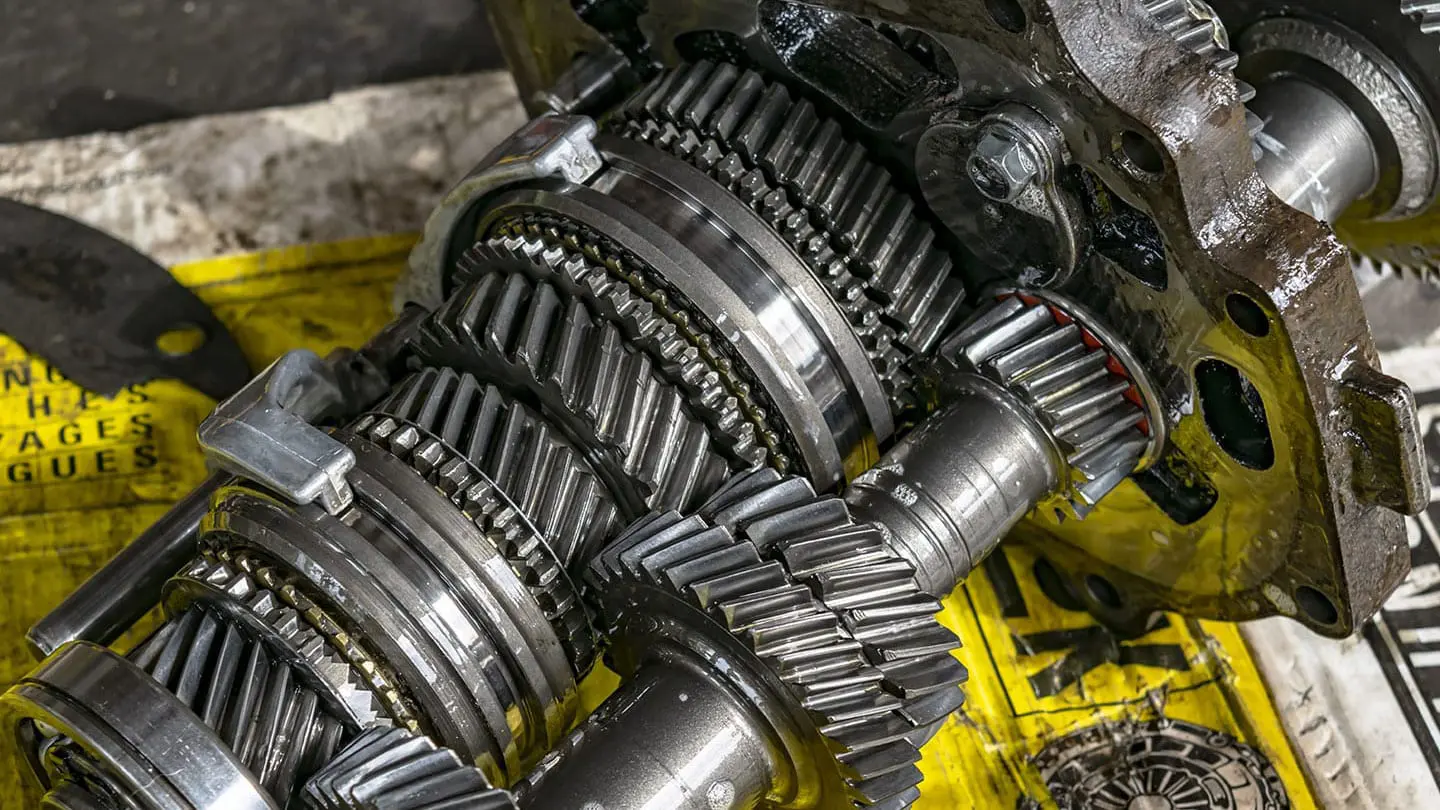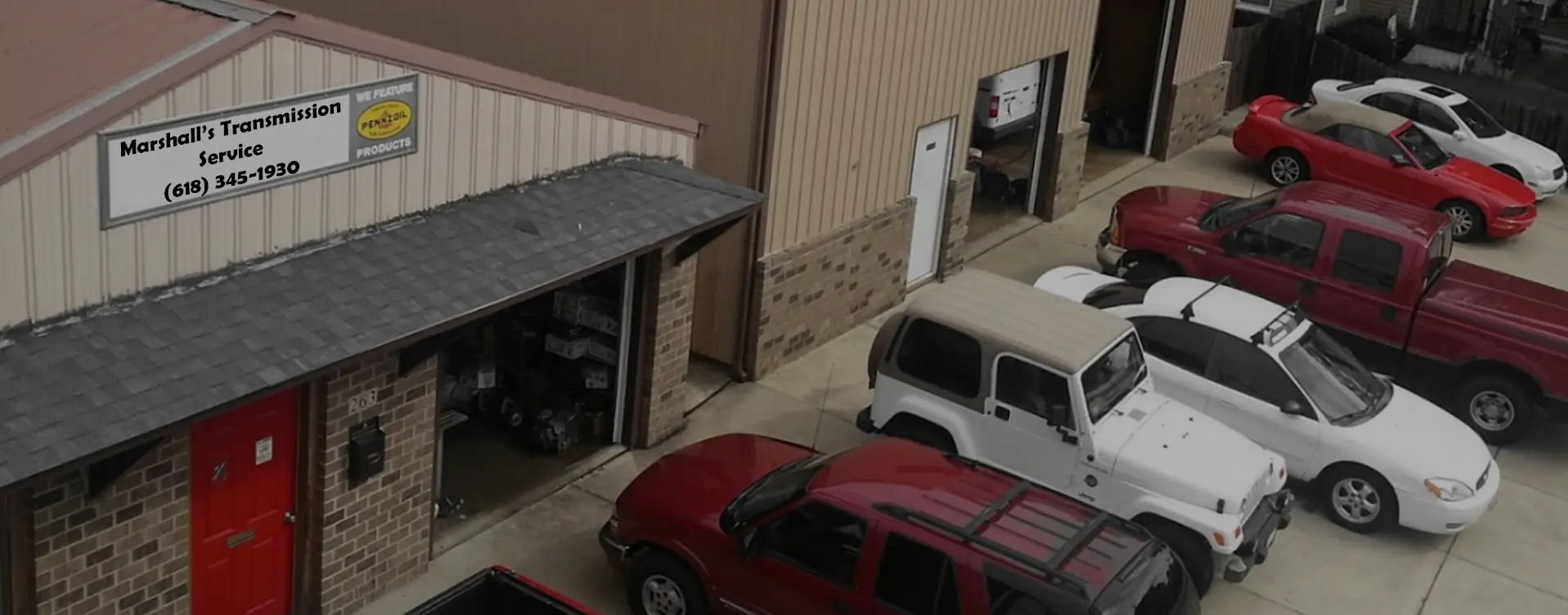5 Most Common Mistakes That Can Ruin Your Transmission
Want to save money on transmission repairs? If so, you’ll need to make sure you’re doing your part to protect your vehicle from premature wear and preventable damage.
At Marshall’s Transmission Service in Collinsville, IL, drivers often ask for tips on how they can prolong the life of their transmission and avoid common issues such as overheating.
Here are the five most common mistakes drivers make that can cause a problem:
1) Shifting Gears While Vehicle Is Moving
One of the most common mistakes drivers make is shifting gears on their automatic transmission before their vehicle comes to a complete stop.
In a vehicle equipped with an automatic transmission, if you move the gearshift into the park or reverse while it is still driving it will grind and chip the gear teeth inside the transmission. Once the gears are worn down, you’ll begin to notice serious problems such as shaking, shuttering, and trouble accelerating.
2) Using the Wrong Transmission Fluid
Conventional automatic transmissions are lubricated and cooled with a highly refined oil called Automatic Transmission Fluid, better known as ATF. Continuously Variable Transmissions, or CVTs, use a particular type of AFT known as CVT fluid.
There are several types of ATF available today, and each type comes in a range of variants. Most vehicles require a DEXRON or Mercon ATF, and these fluids come in a variety of grades as well as conventional and synthetic versions.
Vintage pre-1980 cars often require Type F ATF, while some high-performance import vehicles from Saab, Porsche, and Audi use Highly Friction Modified, or HFM, transmission fluid.
Using the wrong type of ATF, or putting ATF into a vehicle with a CVT, can cause serious problems such as overheating, and that often leads to a costly repair bill.
3) Exceeding the Manufacturer's Recommended Weight Limits
Auto manufacturers specify the cargo weight rating based on the year, model, and engine size of each vehicle they build. Known as the Gross Vehicle Weight Rating or GRWR, this specification is usually listed in the owner’s manual, and it’s readily available online and from the dealership.
Exceeding the GRWR can lead to overheating, and that can trigger trouble with the solenoid and burn the transmission fluid. Keep in mind that the GRWR is the maximum weight that a particular vehicle can carry. The GRWR includes the combined total weight of the driver, passengers, and the cargo in or on the car.
The GRWR also includes the gross trailer weight or GTW. Exceeding the GTW can lead to a host of serious issues ranging from transmission damage to difficulty with steering and braking. Even towing within the weight limits recommended by the manufacturer can cause premature wear and shorten the life of your fluid — that’s why many mechanics suggest carrying or towing no more than 80% of the maximum GRWR.

4) Failing to Keep Up With Regular Maintenance
While modern transmissions are designed to be long-lasting and relatively low-maintenance, it’s still important to stick with the manufacturers’ recommended maintenance schedule. After all, it’s far cheaper to have your transmission maintained than it is to have it repaired, rebuilt, or replaced.
Generally speaking, most drivers should have their transmission serviced at least once every 24 months. High-mileage vehicles, performance cars, and SUVs and trucks that are used to tow boats or trailers should be inspected by a transmission specialist more frequently.
Drivers who are often in stop-and-go traffic, travel through the mountains, or drive in hot temperatures should also have their transmission serviced frequently. Harsh driving conditions can cause transmission fluid to break down sooner than you might expect, and that can lead to overheating, leaking seals, and poor driving performance.
5) Ignoring Transmission Trouble Warning Signs
It’s exceptionally rare for transmissions to work perfectly one day, then fail the next day. As with most mechanical issues, there are often warning signs that there could be a problem. Ignoring these signs can ruin your vehicle.
Be aware of any unusual noises or performance issues such as rattling, grinding, and hesitation when you’re accelerating. Don’t ignore odd, burning smells, as depleted transmission fluid gives off a distinctive odor. Keep an eye out for leaks, as running your vehicle without enough fluid will quickly overheat your transmission and cause the gears to seize up.

To learn more about how you can protect your vehicle against common transmission issues and save money on your car maintenance, contact our team of licensed and insured experts here at Marshall’s in Collinsville, IL.




